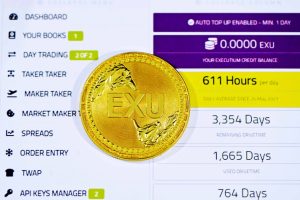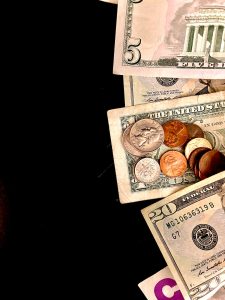Forex trading has become a popular investment opportunity for people around the world. The foreign exchange market is the largest and most liquid financial market, with an average trading volume of over $5 trillion per day. Forex trading offers various trading options for investors to participate in the market and make profits. However, one of the most important factors that investors need to consider is the cost of trading on forex.
The cost of trading on forex can vary depending on several factors. Some of the factors that affect the cost of trading include the type of account, the trading platform, the spread, commissions, and other fees. In this article, we will explore these factors and determine how much it costs to trade on forex.
Type of Account
The type of forex account that an investor chooses can have a significant impact on the cost of trading. Forex brokers offer different types of accounts based on the trader’s level of experience, trading capital, and trading style. Generally, forex brokers offer three types of accounts: micro, standard, and VIP accounts.
Micro accounts are suitable for novice traders who want to start trading with a small amount of capital. These accounts usually require a minimum deposit of $10 to $100, and the transaction size is smaller. The cost of trading on micro accounts is also lower compared to other accounts.
Standard accounts are designed for experienced traders who have a higher trading capital. These accounts require a minimum deposit of $500 to $1000, and the transaction size is larger. The cost of trading on standard accounts is higher than the micro accounts.
VIP accounts are for professional traders who have a significant trading capital. These accounts require a minimum deposit of $10,000 or more, and the transaction size is the largest. The cost of trading on VIP accounts is the highest compared to other accounts.
Trading Platform
Another factor that affects the cost of trading on forex is the trading platform. Forex brokers offer different trading platforms, including MetaTrader 4, MetaTrader 5, cTrader, and others. Some brokers also offer their own proprietary trading platforms.
The cost of trading on forex also depends on the trading platform’s features and functionality. Some trading platforms charge a fee for using advanced features such as automated trading, backtesting, and custom indicators. Other trading platforms offer these features for free.
Spread
The spread is the difference between the bid and ask price of a currency pair. It is the main cost of trading on forex. The spread is usually measured in pips, which is the smallest unit of price movement in forex trading. The spread can vary depending on the currency pair, the trading volume, and the market conditions.
Forex brokers offer two types of spreads: fixed and variable spreads. Fixed spreads remain constant regardless of market conditions, while variable spreads change depending on market volatility. Variable spreads can be wider during periods of high volatility, and narrower during periods of low volatility.
Commissions
Some forex brokers charge a commission for each trade, in addition to the spread. The commission is usually a percentage of the trade size and can vary depending on the broker and the account type. The commission is charged to cover the broker’s costs and generate revenue.
Other Fees
Apart from the spread and commission, forex brokers may also charge other fees, such as rollover fees, withdrawal fees, inactivity fees, and others. Rollover fees are charged when a trader holds a position overnight. Withdrawal fees are charged when a trader withdraws funds from their trading account. Inactivity fees are charged when a trader does not trade for a certain period. These fees can vary depending on the broker and the account type.
Conclusion
The cost of trading on forex can vary depending on several factors, including the type of account, the trading platform, the spread, commissions, and other fees. To minimize the cost of trading, investors should choose a forex broker that offers competitive spreads, low commissions, and transparent fees. Investors should also consider their trading style and capital before choosing an account type. With proper research and analysis, investors can trade on forex cost-effectively and profitably.





